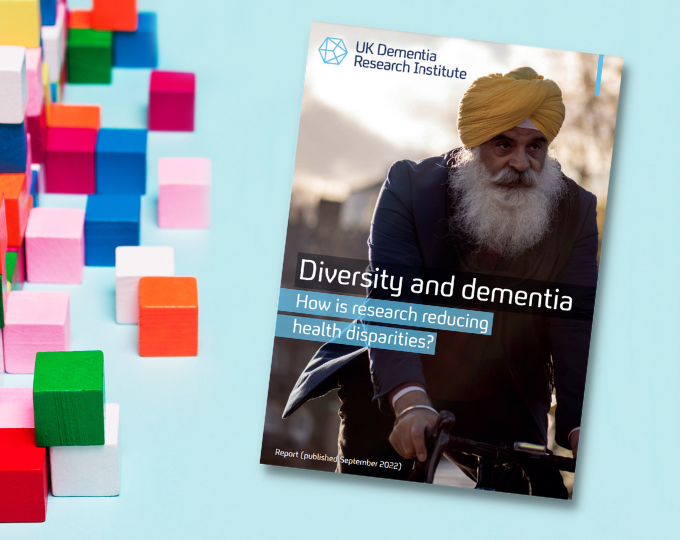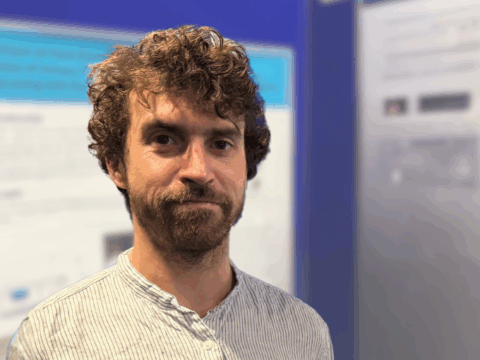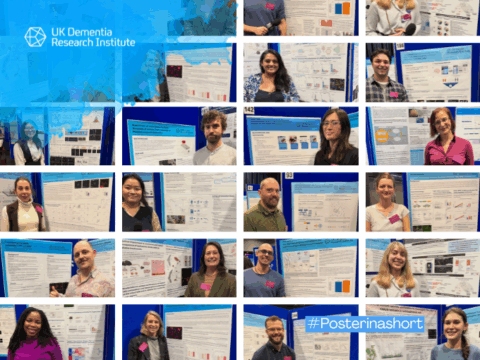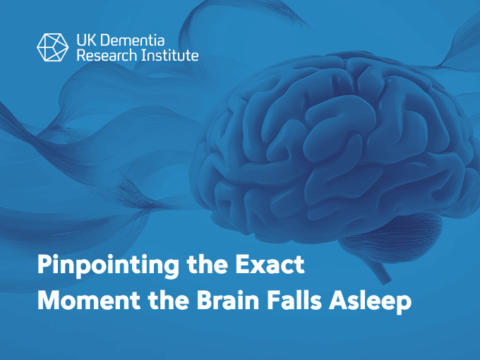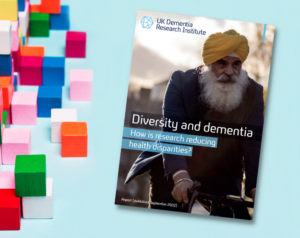 Scientific innovation is essential to reduce the impact of health inequalities in dementia, says a new report released today (Thursday 1 September).
Scientific innovation is essential to reduce the impact of health inequalities in dementia, says a new report released today (Thursday 1 September).
The report from the UK Dementia Research Institute (UK DRI) details the impact of scientific research on health inequalities for people affected by dementia. As the Institute launches its report at the start of World Alzheimer’s Month, it is urging the Government to prioritise funding for scientific innovation, which it says is needed to facilitate larger dementia trials, remove barriers that stop people taking part in research and close the gap on health inequalities.
The UK DRI says a ‘culture shift’ is already underway to build diversity into scientific research. To continue building on these strengths, it is calling for:
- Innovations to achieve quicker, cheaper, and easier diagnosis of the diseases that cause dementia, including funding research into a blood test for Alzheimer’s disease. An accurate diagnosis is needed to join clinical trials, but the process is currently expensive and very invasive.
- Better, more easily accessible information for people wanting to take part in clinical trials, and trial designs that are inclusive and flexible in order to broaden access to trials, particularly for currently underrepresented groups.
- Diversity to be incorporated from the earliest point in the research pipeline so that findings are a true representation of the population.
- More focus on previously under-researched areas such as early-onset Alzheimer’s disease, and the link between Alzheimer’s disease and Down syndrome.
Prof Tara Spires-Jones, Group Leader at the UK Dementia Research Institute at the University of Edinburgh, said:
“I feel strongly that we need to instil an ethos in young researchers that reproducibility, diversity and inclusion are paramount. We need to make sure everything neuroscience discovers is relevant for everyone. That’s the kind of thing I’m trying to get the next generation of researchers to think about from the start.”
Professor Nick Fox, Group Leader at the UK Dementia Research Institute at University College London, said:
“There are lots of underrepresented groups in studies – racial and cultural groups, as well as those who experience poverty. Why is it important? It’s important for social justice. People who are part of clinical trials have better outcomes than people who are not, even if they are given the placebo.”
The UK DRI recently held the latest in a series of workshops engaging people with lived experience of dementia with new technology being developed at the Institute, to explore the usability and accessibility of the innovations while they are in development.
Carroll Siu, who has Parkinson’s disease, took part in the workshop. She said:
“I was part of a group of people living with neurodegenerative conditions who were invited to join a workshop to consider ways to ensure that new technology is accessible and suitable for a wide range of people to use. There was a true sense of patient engagement as people with Parkinson’s, multiple sclerosis and carers of people with Alzheimer’s were there with researchers, clinicians and representatives from charitable organisations in round table discussions as part of the collaborative process of co-creation in research.”
The report comes after the Prime Minister recently launched a new national mission for dementia, recommitting to doubling research funding to £160 million per year, in memory of the late Dame Barbara Windsor, and calling for volunteers to join ‘Babs’ Army’ and sign up to participate in clinical trials.
Health inequalities affect people living with dementia in a multitude of ways: more women die of dementia than men (for reasons more complex than women living longer)1, and dementia is more prevalent in Black and South Asian ethnic groups than white populations2. Lifestyle and socioeconomic factors also influence dementia risk. The UK DRI argues that to tackle these inequalities, change must be instigated not only at the level of NHS and social care, but also in preclinical research.
Professor Nick Fox continued:
“The research community is falling short when it comes to true representation of society, further contributing to already widening health inequalities. Representation is essential both for finding treatments and then ultimately delivering them in a clinical service. So it’s our duty to include this in all our research.”
The report convenes leading dementia scientists from the UK DRI, who are taking action to reduce health inequalities through their own research. This includes:
- Researching “blood biomarkers” to pave the way for a blood test to diagnose Alzheimer’s disease.
- Ensuring both male and female mice are used equally in animal research so that findings can be applied to the whole population. This is policy across the UK DRI.
- Broadening understanding of the implications of ethnicity on risk of Alzheimer’s disease through genetic studies.
- Working to make clinical trials more accessible to all.
- Pioneering accessible, scalable, and affordable new therapies.
- Investigating rarer forms of dementia to plug the knowledge gap and support people living with these diseases.
- Addressing the environmental and lifestyle factors that impact brain health to better understand the link between socio-economic status and dementia risk.
Prof John Hardy, Group Leader at the UK Dementia Research Institute at University College London, said:
“At the moment, we can predict amongst white Europeans who will get Alzheimer’s disease with accuracy of about 80%. But with regard to people with Black African heritage it’s only about 60%, and in Chinese populations we’re only able to predict it to about 70%. So we need to get better. Not only is this important for decreasing health disparities but studying the disease in different populations will help us all. We might find different genes that influence the disease risk or different mutations, which help fill in the holes in our knowledge about the development of these diseases in general.”
Dr Frances Wiseman, Group Leader at the UK Dementia Research Institute at University College London, said:
“To tackle health inequalities, we need to understand what puts certain groups at higher risk. A prime example is in the case of people who have Down syndrome and have a very high risk of developing dementia in their lifetime, and yet there has been very little research into this. My team are working to address this gap in knowledge and improve health outcomes for this important group of individuals.”
Dr Adrian Ivinson, Co-Director of the UK Dementia Research Institute, said:
“We know that dementia disproportionately affects certain groups of people, and while there is rightly a focus on tackling health inequalities at the level of care, the role of scientific innovation is too often forgotten. It’s fantastic to see so many of our researchers taking steps to tackle health inequalities through their work, and it is exciting to think that their efforts represent a shift in research culture, towards a world in which diversity and inclusivity are considered at every step in the research pathway.
“To achieve our mission of transforming treatment and care for everyone affected by dementia, it’s vital that we take steps to understand why and how different groups are affected differently by the same diseases. To do this, we must bring innovation to the forefront, from our fundamental discovery science, through to developing quicker, easier and cheaper methods of diagnosis, as well as finding new solutions to make clinical trials more inclusive and accessible to all.”
Download the Report

 Print This Post
Print This Post